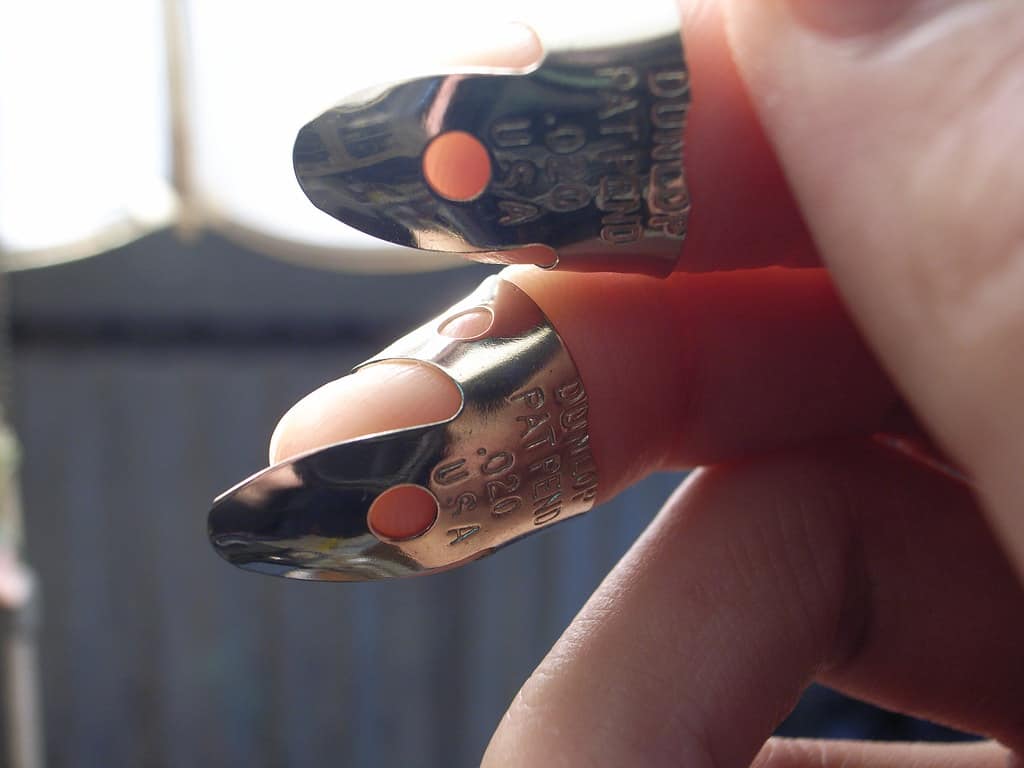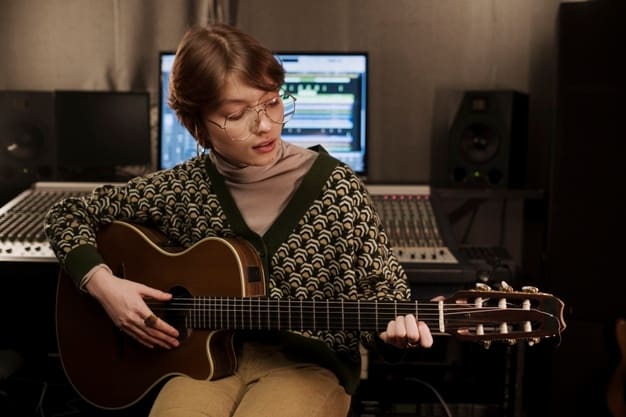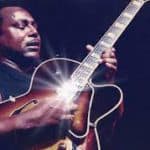Fingers are the natural tools that allow us to create music with our guitars.
While everyone knows that, it is often forgotten the importance of nails for this task.
If you pay attention, you may notice how many guitarists like to let their nails grow.
This is because the length changes both the way one plays and the overall sound.
Does this mean that I need to have long nails to play guitar?
Can’t I just play with short nails?
You can play guitar with short nails, but ultimately, your playing will sound softer. While short nails are recommended for fretting hands, the plucking hand generally functions better with long nails. However, you can always play with a pick if you want that extra aggressiveness and attack in your sound.
As always, this topic is trickier than you may think.
Keep on reading to fully understand the importance of nails for guitarists.
Having short nails will benefit your chords
Most guitarists are right-handed, which means that their left hand is their fretting hand.
The fretting hand (right or left, depending on who we are talking about) is the one that which note or notes you are letting sound.
Chords are easier to play if you have short nails. Not only easier, but possible.
Here’s the thing. Fretting a chord requires pushing the strings against the fretboard with the tips of your fingers applying some pressure.
Long nails prevent this task from being done properly.
However, try not to have them exceedingly short.
You don’t want to expose the nail bed.
If you do, you might find difficulty playing because of the pain.
Find a balance. Neither too short nor too long.
Picking hand nail length for guitar
On the other hand (literally), having long nails for your picking hand is not a bad decision at all.
You might believe having a combination of both long and short nails will make you seem a bit strange.
Forget about it! Artists tend to have extravagant looks!
However, the real reason why you might consider having long-right-handed nails is because of sound.
A good number of guitarists like how strings sound when being plucked with their nails, so letting them grow is not a bad idea.
You might wonder how long should you have your nails, then.
It is recommended to have a length of 2-3 millimeters.
Eventually, you can increase this number until you feel comfortable enough with a length of your choice.
Will I still be able to play fingerstyle with short nails?
Are you one of those who cannot stop biting their fingers?
Are you worried about it?
Take it easy. You still can play fingerstyle with short nails.
For example, you can use the tips of your fingers.
Of course, there’s going to be a significant difference in the sound you produce with your fingertips/short nails.
Such a sound is going to be warmer and mellower.
On the contrary, nails provide brighter sounds.
Is there any difference in playing with short nails?
As mentioned before, the sound is going to be the number one differentiation between short and long nails.
Short nails equal warm, soft tones.
Moreover, the length of your nails will suit certain techniques better than others.
Arpeggios and fast scale passages are easier to play with short nails, for instance.
More than that, you won’t find more significant changes.
Is it harder to play guitar with short nails?
The answer to this question varies depending on who we are talking to.
That is to say, some musicians find it easier to play with long nails.
Others may think having short nails is the real deal.
All in all, playing with short nails is not necessarily harder.
It certainly helps for your fretting hand, but picking will probably make little to no difference.
Sound difference? Yes. But not in difficulty.
However, some techniques are going to work better if you have long nails.
For example, techniques used in flamenco.
Rasgueados, for instance, require a brush of the strings. They should be played as an individual downstroke, with the index finger upstroke.
With long nails, this is a guarantee.
Conversely, many flamenco musicians have short nails.
This fact proves that the way you play and the difficulty you experience should not be compared to others.
How to get the benefits of longer nails when you don’t have them?
Can’t wait to grow your nails? Then nail picks can be your solution.
No, I’m not talking about the nail-biting disorder.
Nail picks (or fingernail picks) are ring-like tools made of plastic or metal.

They resemble both picks and nails, and they emulate the impression of having long nails.
If you want to get a more brittle sound without using real nails, then buy fingerpicks.
It would probably be a good idea too, to get them just to try them.
In other words, to understand how playing with long nails works, and to check if it suits the style you are looking for.
Should I grow my nails if I want to play guitar?
It is not mandatory to grow your nails for proper playing.
You don’t even need a whole set of strings, to begin with!
As long as your guitar is properly tuned, then you can make something out of it.
If you urge to play, then go and do it.
What I’m trying to say is that you can adapt and learn with the tools you have at hand. The rest will be acquired eventually.
This applies to your nails, too
If you have short nails, who cares?
Go and play with them like that. You can do it!
Now, if you still want to have long nails, then don’t cut them down. Let them grow until they reach a considerable length.
Check whether you feel comfortable playing with them or not.
It won’t hurt experimenting a bit.
Summary
Let’s make a quick summary of the main points mentioned in this article:
- Short nails are preferred for fretting hands
- Short nails work too on plucking hand
- Fingerpicks are a good substitute for long nails
- Finger plucking with short nails creates warm, soft sounds
Last but not least, it is key to mention how the length of the nails affects the way you play guitar.
Not in the style or technique, as I said before, but perception.
After all, what works for you may not work for someone else.
It is of paramount importance to experiment until you find the way you feel most comfortable with.

Hello there, my name is Ramiro and I’ve been playing guitar for almost 20 years. I’m obsessed with everything gear-related and I thought it might be worth sharing it. From guitars, pedals, amps, and synths to studio gear and production tips, I hope you find what I post here useful, and I’ll try my best to keep it entertaining also.





